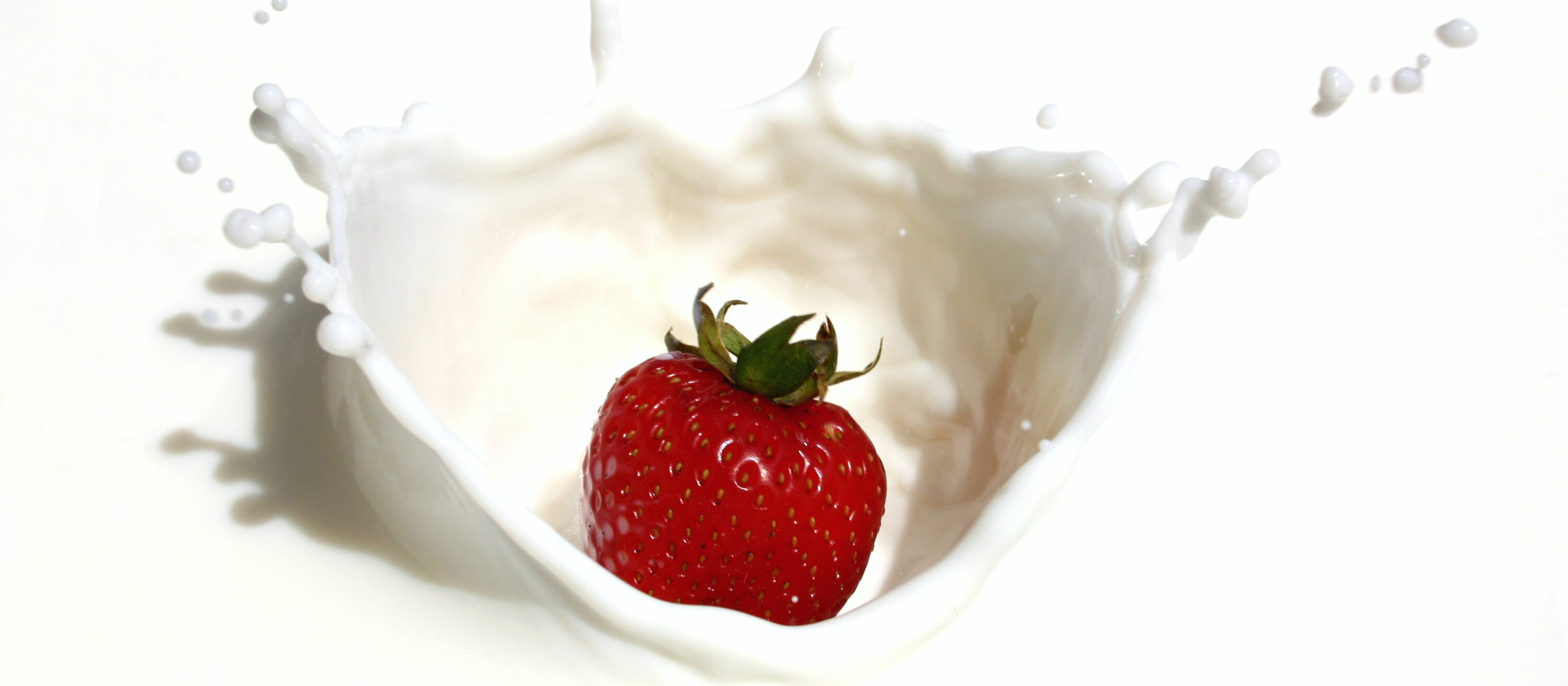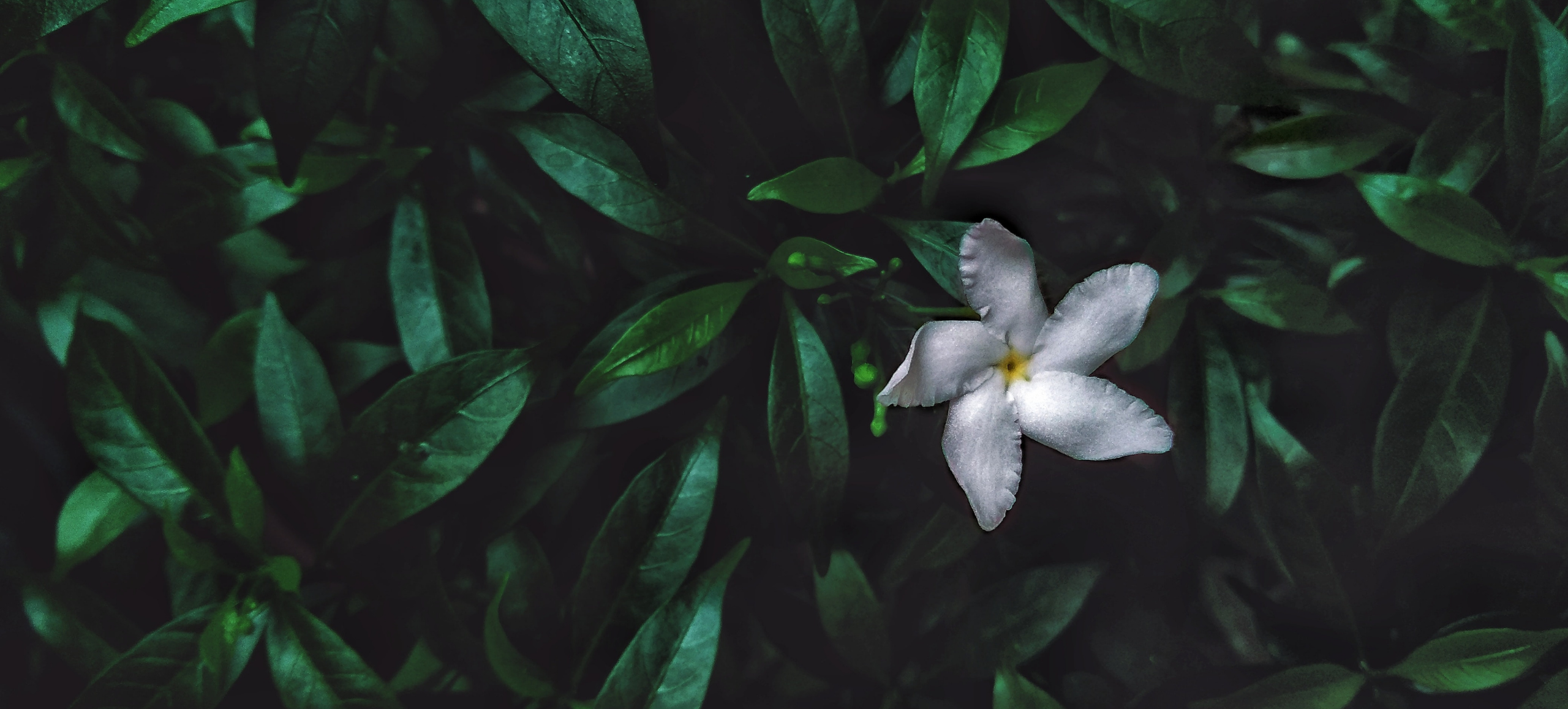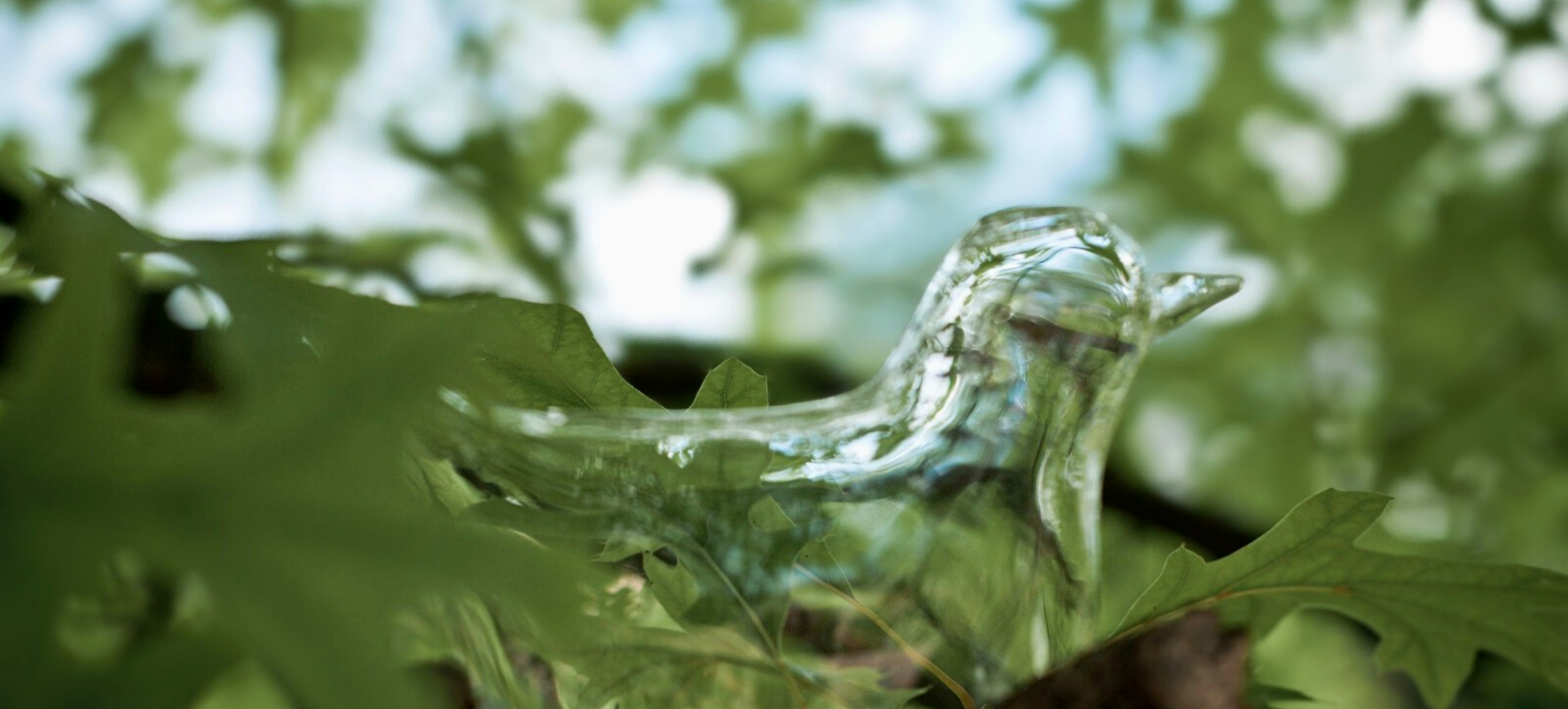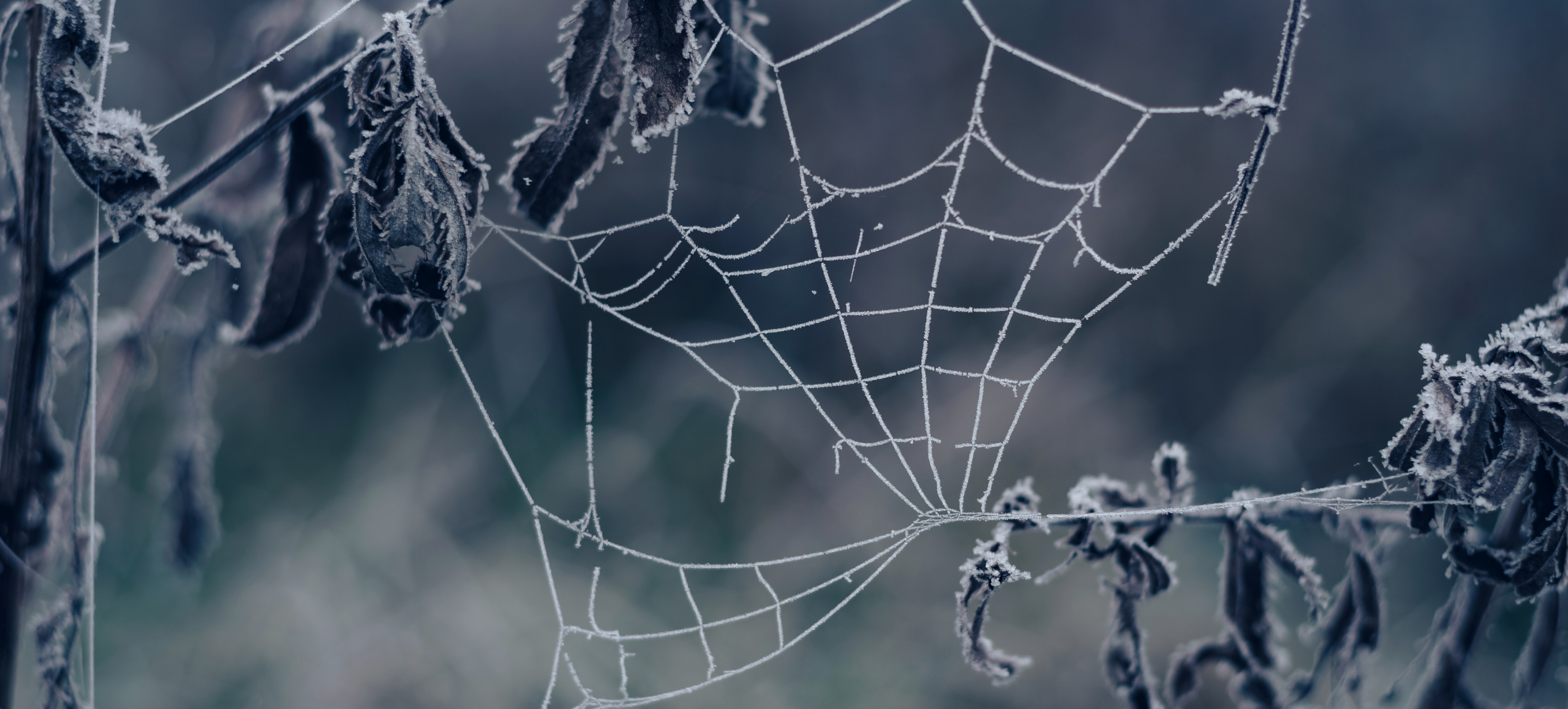By Rina Olsen
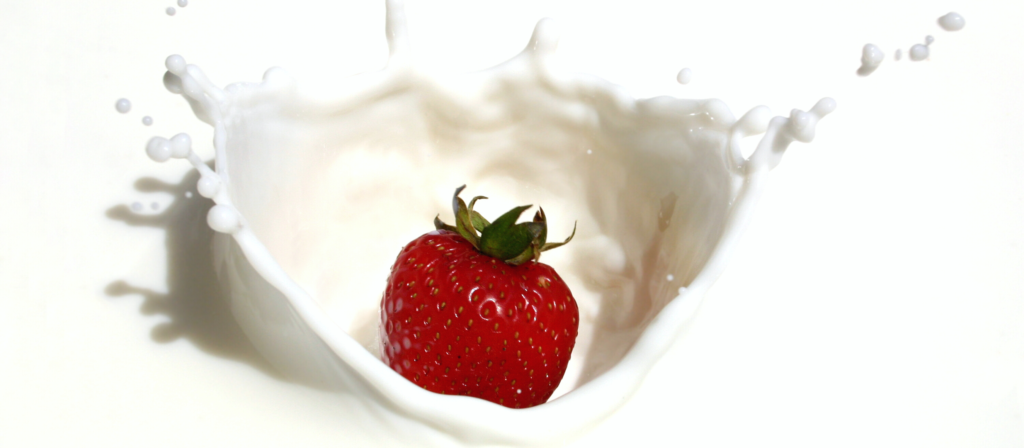
.
We sat on the porch together despite the cold, encased in warm woolen sweaters printed with beige zig-zag Charlie Brown stripes. My mother’s slender, strong hands, tinted red by the winter wind, peered out from long sleeves to grip the spoon and press. With a squelch, the red flesh burst, and light coral-hued blood seeped through the paper towels to drip through the sieve into the glass bowl beneath. I watched the clear red fluid rise as the relentless spoon bore down on it over and over. Little juice stains blossomed on the paper towels.
“See?” My mother panted, stopping to observe her work. She tilted her head, considering it, and continued, “The juice drips through the paper towels, while the seeds remain. Then I can collect the seeds.”
She looked up at me, her lips a crescent of excitement. I didn’t see what there was to be so excited about, even if it was our first harvest. So I said nothing.
“And then we’ll plant them and they will grow until we have a proper harvest.” She resumed her crushing, the corner of her eyes crinkled with her smile. “딸기. Say it, Hana. 딸기.”
“Ddal-ghee,” I repeated, but the word was distorted in my mouth like a melted hunk of metal. Cold, foreign, useless.
The flicker of a crease in my mother’s brow, the slight pucker of her now downturned lips, weren’t from the laborious task of crushing strawberries. I could tell.
Ddal-ghee, ddal-ghee, I mouthed silently while she crushed. The word rolled around on my tongue, trying to grow hot enough to burst into flames and burn up whatever it was that restrained my mouth from forming the word correctly. But silent fires didn’t exist, only silent flames, and no matter how many times my tongue jumped from the roof of my mouth to curl under it in order to form the first syllable, I could not convert ddal-ghee into 딸기.
I’d gotten used to coming home from school and seeing the pots of soil lining the exterior of our house snugly, each cradling a few seeds for the sunlight to kiss. They were gone, though, one spring afternoon when the cool breeze got down my clothes and I could practically taste the scent of fresh pastries wafting from the bakery.
I dumped my backpack on the porch when I noticed their absence. “Mom?”
I looked around the sprawling verdant hillock that our house sat on. My mother was crouched in a semicircle of pots, a row of neat holes marching past her in the soil. Some of the holes had been filled already—with the strawberry seedlings.
“Mom!” I ran over, my feet sinking through the thick dew-speckled couch grass. She patted the soil in place around a seedling she had just transferred. “What are you doing?”
“It’s so they can grow better.” She shuffled sideways to the next hole.
“But they were fine in the pots.”
Deftly she picked up another pot and eased out its seedling and the entire cylinder of soil it clung to. Some of the soil crumbled away from the bottom, exposing a single veiny root, but she quickly lowered it into the ground before it could completely break apart.
“I know. But they might be stifled in their native soil. They’ll grow better in foreign land. This is their home now. Not foreign anymore.” She gently patted the soil in place. “It will be better for their offspring, at least. They will know nothing other than this expanse of land, but at least they will grow to be healthy fruit.” She continued to the next hole, still not quite looking at me.
When the delicate white petals of the strawberry blossoms unfurled to bear fruit, I was beside myself.
“They’re green! That isn’t what strawberries are supposed to look like! We must have planted them wrong!” I stared in dismay from where I sat on the porch.
“Hana, it’s okay. They simply aren’t ripe yet. They’ll turn red soon, become like their parents. They just need time.”
“But what if they don’t? What if they just stay that way? Are green strawberries edible?”
The humid breeze stirred my mother’s hair, turning it into the fluttering down of a cormorant. She sat next to me on the porch, her bare feet nestled in the recently mown grass, eyes resting on the strawberry plants that waved at us from afar in neat rows. A phalanx of fresh fruit.
“Have faith,” she said without looking at me. “Be patient. They will remember their forebears.”
I turned back to look at the strawberry plants and inhaled slowly, deeply, trying to catch the faintest whiff of sweetness. “When do you think they’ll ripen?” I asked, watching one small, hard, green knot bob in the breeze.
No answer. I glanced at my mother. She was gazing at me.
I felt a twinge of confusion and surprise. “Mom?”
She looked away. “I don’t know,” she said softly and shook her head. “I don’t know.”
She was right, though. In time, green was swallowed up by red. The knots softened, swollen with juice. And on each were what appeared to be a hundred flecks of gold, proud badges of honor for being the first fruit to ripen in spring.
The gleaming blade darted through the crimson folds, beating a hearty thunk-thunk rhythm on the cutting board. I gripped the board and carefully held it up so that the knife could guide the mashed strawberries into the glass bowl. In skittered a shower of sugar, which whispered to the fruit while the spoon clinked against the bowl, stirring everything together, making the two foreign bodies one. The snow melted into the lava, little pale grains that darkened and disappeared with each swish of the spoon. I fell into rhythm, my hand and the spoon waltzing, one-two, one-two, and I glanced out the window. My mother was crouched in the grass outside, filling her basket with fresh strawberries. I smiled, looked over at my own emptied basket, and stopped to survey my work.
I wiped my sweaty hands off on my apron and reached for the milk carton that was refreshingly cool to the touch. I unscrewed the cap and a ribbon of white fell out, coiling around the furious scarlet mixture to tame it and make it blush a soft pink. There were still dots of red, but that was to be expected. Origins could not completely be erased.
I stopped stirring and let the ingredients flow into each other naturally. I looked around. Straws, I realized. And glasses.
When I went outside my mother was sitting on the porch, her basket at her side as she tugged off her shoes. She turned slightly to look over her shoulder at me. “Oh, Hana. Is there something…” She trailed off when she spied what I held: two glasses of strawberry milk glazed in condensation.
We hung there for a moment, trying to figure each other out. Then the inevitable question stumbled off of my tongue: “Won’t you share it with me?”
She blinked. I rushed on. “Korean strawberry milk. I found the recipe online. I—I thought you might like some.”
Her gaze fell from my face onto the glasses. Her lips pursed as she eyed one wistfully. “I have to collect the seeds,” she said reluctantly, holding up her basket of strawberries. “For the next harvest.”
I shook my head. “You don’t need to. I saw that the plants are beginning to produce runners. In a few months, they’ll produce their own daughter plants, which will then produce their own fruit.”
My mother looked confused.
I sighed. I wondered if I should tell her about asexual reproduction and how it worked, but I knew the stuff would go way over her head. So I translated it into her own language: “Strawberry runners run far, but they do not forget their forebears.”
Recognition filled her eyes and she nodded, once, twice. She reached up and I carefully lowered one slippery glass into her hand. I sat down next to her and her lips latched onto the straw.
“딸기우유,” she sighed when she broke away.
Cold sweetness flowed through my tastebuds, lingering even when the liquid itself gushed down my throat and shivers of pleasure ran through me. “Ddal-ghee-oo-yoo,” I repeated. Strawberry milk. She looked at me, and I tried again.
“딸기우유.”
What a season for strawberries.

Rina Olsen is a Korean-American teen writer living on Guam. Her work has either appeared in or is forthcoming in Jellyfish Review, Dreams & Nightmares, 101 Words, Nanoism, Mobius: A Journal of Social Change, and Months to Years, among other places. When she is not writing, she can be found playing the piano, looking up random bits of history, or making her way through high school, most likely not all at once.
Why we chose this piece: The sensory details in this story are amazing, and Rina builds a nice tension between her characters. This quiet exploration of a mother-daughter relationship through growing strawberries and drinking strawberry milk is lovely. The use of subtext works so well.

